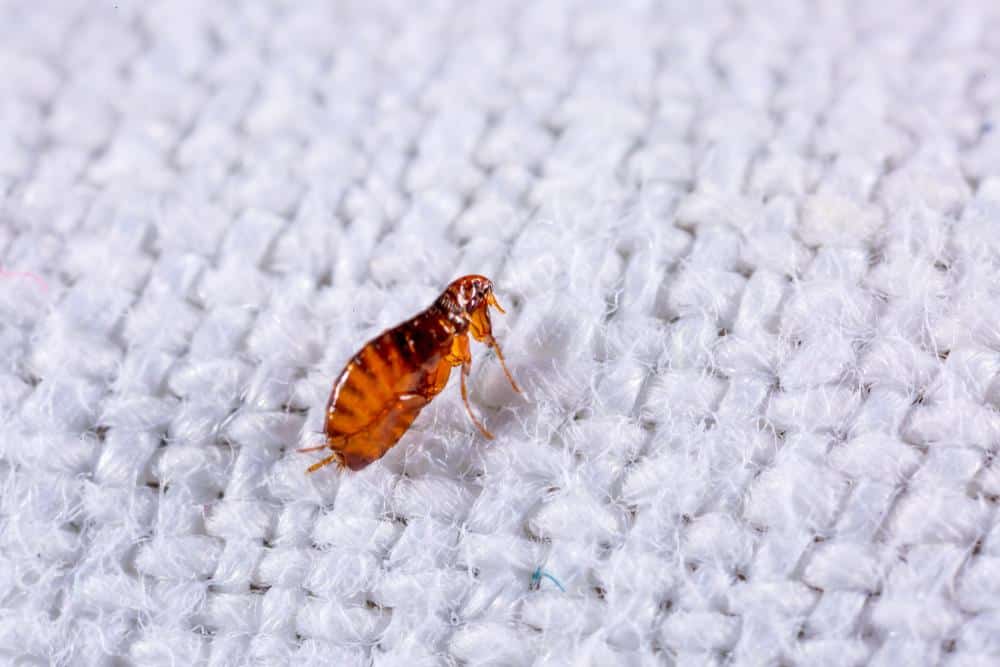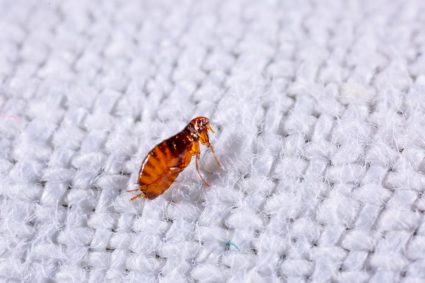
Fleas can be a nightmare for pets and their owners. These pesky parasites can cause discomfort, irritation, and in severe cases, health complications for your beloved furry friends. But, with the vast array of flea treatments available in the market, it can be challenging to determine which flea medicine actually works. In this comprehensive guide, we’ll dive into the various flea treatments, their effectiveness, potential side effects, and factors to consider when choosing a flea medicine for your pet.
Several flea medicines on the market have proven to be effective, including Bravecto Chewables, Advantus, Simparica Trio Chews for Dogs, Frontline Plus, K9 Advantix II, PetArmor Plus Flea and Tick Prevention for Dogs, Capstar Flea Control Tablets, and Seresto Flea and Tick Prevention Collar. These medicines contain active ingredients like Fipronil, S-Methoprene, Pyrethrins, Lufenuron, Imidacloprid, and Permethrin that target different stages of the flea life cycle. However, their effectiveness can vary depending on the pet’s individual needs and sensitivities, so it’s essential to consult with a veterinarian.
Key Ingredients in Effective Flea Medicines
Effective flea medicines contain multiple active ingredients that target different stages of the flea life cycle. Some of the key ingredients include:
- Fipronil: Kills adult fleas by attacking their nervous system.
- S-Methoprene: Prevents the completion of the flea life cycle by acting like an insect hormone and interfering with growth and development.
- Pyrethrins: Disrupts the normal function of an insect’s nerve cell, causing it to fire impulses non-stop, ultimately leading to the insect’s death.
- Lufenuron: Stored in the animal’s fat and transmitted to adult fleas when they bite the animal. Any larvae produced by these adults will not have the ability to produce an exoskeleton, causing them to die.
- Imidacloprid: Toxic to fleas and kills 98% of fleas on the body within 24 hours.
- Permethrin: Effective in killing fleas, ticks, lice, mites, and mosquitoes.
Popular Flea Medicines on the Market
Based on their effectiveness and popularity, some of the most recommended flea medicines currently on the market include:
- Bravecto Chewables
- Advantus
- Simparica Trio Chews for Dogs
- Frontline Plus
- K9 Advantix II
- PetArmor Plus Flea and Tick Prevention for Dogs
- Capstar Flea Control Tablets
- Seresto Flea and Tick Prevention Collar
Evidence Supporting the Effectiveness of Flea Medicines
Several studies have demonstrated the effectiveness of popular flea medicines. For instance, a study comparing the efficacy of fipronil/(S)-methoprene (Frontline Plus) and spinosad (Comfortis) found that both products were effective in controlling adult fleas and preventing egg production on dogs. Another study showed that fluralaner (Bravecto) was effective against nymphs of Amblyomma americanum and Rhipicephalus sanguineus ticks.
However, it is essential to consult with a veterinarian to determine the most suitable product for your pet, as individual pets may have different needs and sensitivities.
Potential Side Effects of Flea Medicines
While flea medicines are generally safe, they may have potential side effects such as:
- Neurologic adverse reactions: Some products have been associated with muscle tremors, ataxia (lack of coordination), and seizures in some dogs and cats.
- Skin effects: Irritation and redness may occur at the site of application.
- Gastrointestinal problems: Vomiting and diarrhea have been reported as side effects of some flea and tick medications.
If you suspect that your pet is experiencing an adverse reaction to a flea and tick product, consult your veterinarian immediately.
Choosing Between Oral and Topical Flea Treatments
The choice between oral and topical flea treatments depends on the pet’s age, health status, medication history, and individual needs. It is essential to consult with a veterinarian to determine the most suitable flea prevention method for your pet.
Factors to Consider When Choosing a Flea Medicine
When choosing a flea medicine for your pets, consider factors like age, breed and coat type, pet’s health history, duration of protection, speed of action, ease and convenience of application, mode of action, prescription requirements, cost per use or application, pet age and weight requirements, waterproof and water-resistant properties, and species-specific treatments.
Conclusion
While there are several effective flea medicines available, it’s crucial to consult with a veterinarian to determine the best option for your pet. Always ensure the product is age-appropriate, suitable for your pet’s weight, and does not contain ingredients your pet may be allergic to. With the right flea medicine, you can ensure your pet is protected from these pesky parasites.
Frequently Asked Questions
Can I use the same flea medicine for my cat and dog?
No, not all flea medicines are safe for both cats and dogs. Some ingredients that are safe for dogs can be harmful to cats, and vice versa. Always make sure to choose a product that is specifically labeled for your pet’s species.
How often should I apply flea medicine to my pet?
The frequency of application can vary based on the product and your pet’s environment. Some products offer monthly protection, while others may last longer. Always follow the instructions provided on the product packaging or by your veterinarian.
Can I use flea medicine on a pregnant or nursing pet?
Some flea medicines are safe for use on pregnant or nursing pets, while others are not. Always consult with your veterinarian before administering any medicine to a pregnant or nursing pet.
Can flea medicine be used on young puppies or kittens?
Many flea medicines have age and weight restrictions. Some products can be used on puppies and kittens as young as eight weeks old, while others may require the pet to be older. Always read the product label or consult with your veterinarian for guidance.
Can I apply flea medicine if my pet is already on other medications?
Some flea medicines can interact with other medications, causing adverse effects. Always inform your veterinarian of any other medications your pet is taking before starting a new flea treatment.












